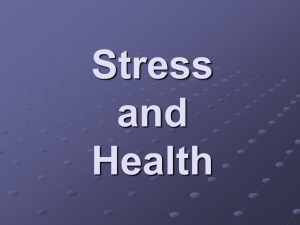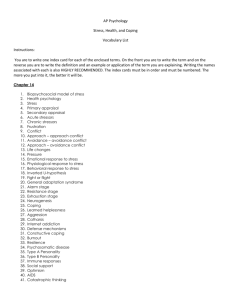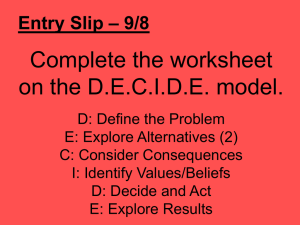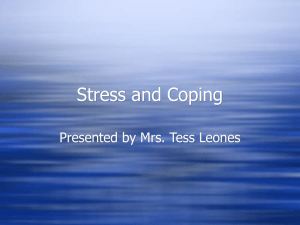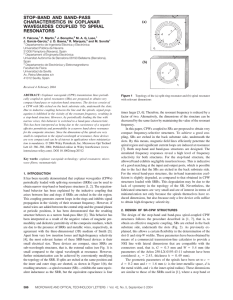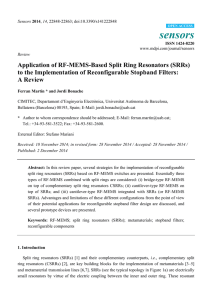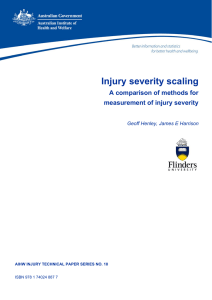Stress and Health
advertisement
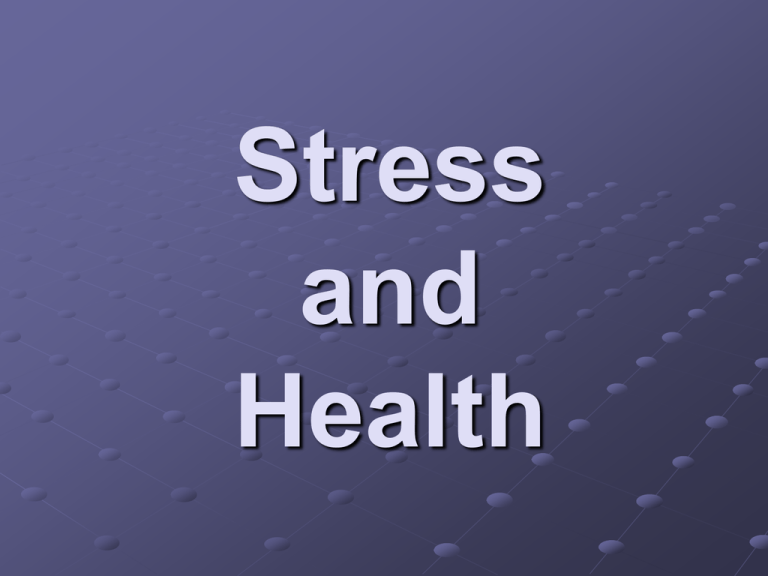
Stress and Health We all experience stress but we don’t all find the same situations stressful. Stress means different things for different people, and everyone has their own way of coping with it. Some people can even worry themselves sick and some research links stress directly to illness and death Stress Stress has many definitions but we will define it as… the experience of being threatened by taxing circumstances either by internal or external factors Stress also depends on how people appraise or evaluate environmental events. Types of Stressors Stressors Things that cause us stress psychologically or physically demanding events or circumstances that lead to stress linked to weight gain or physical illness such as heart disease, anxiety, and depression catastrophic events major life changes minor hassles The Physiology of Stress Hans Selye is the big daddy of stress research He came up with a stage theory for stress What does this mean?? “General Adaptation Syndrome” Stage 1 - Alarm The point we recognize something is going on maybe a threatening situation The sympathetic nervous system is activated Heart rate increases, blood is diverted away from other body functions to muscles needed to react Flight or fight response Stage 2 - Resistance The body remains biologically ready and tries to fight off the stress Hormones are released to maintain the state of readiness If the resistance stage lasts too long the body can deplete its resources Stage 3 - Exhaustion Exhaustion The body returns to normal state Burn Out We can be more vulnerable to disease in this stage especially if our resources were depleted by an extended resistance stage Remember !!!! Selye’s three stages ARE a GAS ARE = Alarm, Resistance, Exhaustion and GAS = General Adaptation Syndrome Measuring Stress Holmes and Rahe designed a test to measure stress Social Readjustment Rating Scale (SRRS) Used life-changing units (LCUs) Changes in life like changing jobs, moving, or marriage or death The more LCUs the more stress and risks in health SRRS SRRS #2 – for minors Coping Efforts to manage stress Some are good and confront the problem and some are destructive like the use of alcohol and drugs to escape the problems Factors that improve coping Social support Faith Factor Optimism – positive psychology Perceived control – internal locus or external locus Personality and Stress Type A vs. Type B Type A known as stress junkies – highly competitive, aggressive, and incapable of relaxation at a higher risk for coronary heart disease Type B patient, relaxed, and easy-going Type AB – for those who are mixed
